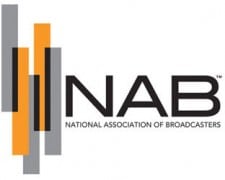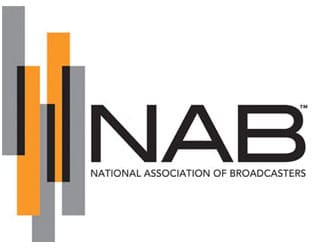 Here’s a letter to the FCC expressing legal problems with the Media Bureau’s new processing guidelines for proposed television mergers and calling on Commission to direct the Media Bureau to withdraw these guidelines by 5/8:
Here’s a letter to the FCC expressing legal problems with the Media Bureau’s new processing guidelines for proposed television mergers and calling on Commission to direct the Media Bureau to withdraw these guidelines by 5/8:
May 1, 2014
Marlene H. Dortch, Secretary Federal Communications Commission
445 12th Street, SW Washington, DC 20554
Re: Processing of Broadcast Television Applications Proposing Sharing Arrangements and Contingent Interests, DA 14-330.
Dear Ms. Dortch: The National Association of Broadcasters (“NAB”)1 writes to express further objections to the Media Bureau’s Public Notice, entitled Processing of Broadcast Television Applications Proposing Sharing Arrangements and Contingent Interests (“Public Notice”), in light of the Commission’s Further Notice of Proposed Rulemaking and Report and Order of March 31, 2014 (“March 31 Decision”). The Media Bureau’s Public Notice is arbitrary and capricious for the reasons set forth in NAB’s letter of April 10, 2014. The legal deficiencies of the Public Notice are compounded by the Commission’s March 31 Decision in the following respects. First, the Public Notice is inconsistent with the regulatory framework established in the March 31 Decision. The March 31 Decision provides that Joint Sales Agreements (“JSAs”) for more than 15% of a television station’s weekly advertising time must be attributed for purposes of the media ownership rules, absent a waiver. See March 31 Decision ¶¶ 340, 364. For all other shared service agreements (“SSAs”), the Commission made no decision and expressly declined to impose regulation. In fact, the Commission stated that its decision with respect to JSAs “does not disturb other sharing agreements, such as those that allow stations to share facilities, provide local news production assistance, or share administrative and technical personnel, and any operational efficiencies and related potential public interest benefits created by these agreements will continue.” Id. n.1104 (emphasis added). Rather than regulate SSAs, the Commission found that it lacked sufficient information to “formulate sound public policy,” id. ¶ 327, and proposed “a disclosure requirement that would help the Commission and the public determine the extent to which [SSAs] may impact the Commission’s policy goals,” id. n.1104, and to “provide the basis for informed decision making about any necessary future Commission regulation impacting SSAs or particular categories of SSAs,” id. ¶ 329. The Public Notice’s pronouncement that the Media Bureau immediately will regulate SSAs with contingent interests by applying different
1 The National Association of Broadcasters is a nonprofit trade association that advocates on behalf of free local radio and television stations and broadcast networks before Congress, the Commission and other federal agencies, and the courts.
Page 2
and greater scrutiny cannot be reconciled with the approach adopted in the March 31 Decision. The mixed signals communicated by these two actions thus amplify the Public Notice’s flaws. Second, it is very disturbing that the March 31 Decision barely acknowledges the Public Notice. The March 31 Decision cites the Public Notice just once, in a footnote, as support for the observation that television JSAs have increased in prevalence and that such agreements are getting more attention in broadcast television transactions. See March 31 Decision ¶ 342 & n.1048. The Commission nowhere recognizes that the Public Notice purports to regulate all television sharing arrangements with contingent interests, not merely JSAs, and certainly never explains or justifies the impact of the Public Notice on television licensees and station transactions. This silence again amplifies the arbitrary and capricious nature of the Public Notice. See FCC v. Fox Television Stations, 556 U.S. 502, 515 (2009) (“An agency may not . . . depart from a prior policy sub silentio or simply disregard rules that are still on the books.”); see also Atchison, Topeka & Santa Fe Ry. Co. v. Wichita Bd. of Trade, 412 U.S. 800, 808 (1973) (“Whatever the ground for the [agency’s] departure from prior norms, . . . it must be clearly set forth so that the reviewing court may understand the basis of the agency’s action.”). Third, the Media Bureau’s actions are fatally premature. The Public Notice prejudges the pending rulemaking and purports to adopt standards that the Commission has thus far declined to endorse. The March 31 Decision makes clear that the Commission lacks any working definition of SSAs, see March 31 Decision ¶ 329, and, as noted above, does not even possess adequate information to regulate such agreements, see id. ¶ 8. The FCC cannot regulate on the basis of speculation and conjecture. See, e.g., ALLTEL Corp. v. FCC, 838 F.2d 551, 560-61 (D.C. Cir. 1988). In sum, the Public Notice violates the Administrative Procedure Act. It cannot be squared with the March 31 Decision, reflects unreasoned action, and sends conflicting signals to broadcasters as to the rules of the game for sharing arrangements. As a result of these deficiencies and those set forth in NAB’s letter of April 10, 2014, we respectfully request that the Commission direct the Bureau to withdraw the Public Notice and immediately cease and desist application of the strict scrutiny standard to sharing arrangements that involve contingent interests. We request that the Commission take this action by May 8, 2014. Sincerely yours,
Jane E. Mago
Executive Vice President & General Counsel
cc: William Lake, Maria Kirby, Adonis Hoffman, Clint Odom, Matthew Berry, Courtney
Reinhard





